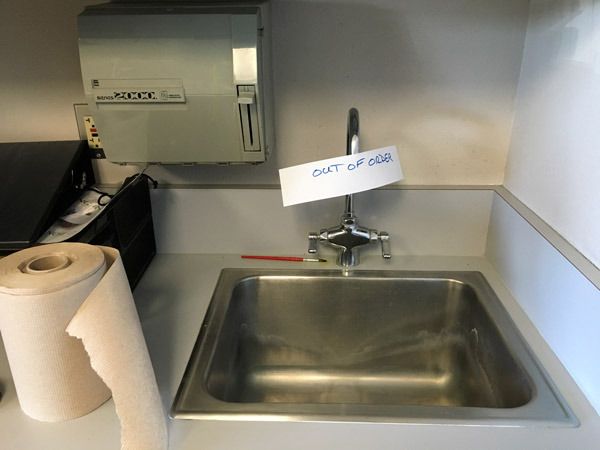A voluntary test of water fixtures in Greywolf Elementary and Helen Haller Elementary recently revealed excess lead in some of the schools’ sinks.
The Sequim School District reported to families and staff on May 26 via email that results from the planned first round of sampling showed excess lead in five classrooms and three office areas’ sinks at Greywolf and two hallway sinks at Helen Haller.
School staff said affected sinks were disabled immediately.
Drinking fountains also were tested and do not contain excess lead, said M. Patsene Dashiell, director of communications for the school district.
The fountains are deemed safe and will remain available for students, she said.
To address concerns from the findings, school officials host a public forum from 6:30-8 p.m. Thursday, June 2, at Sequim Middle School’s gymnasium, 301 W. Hendrickson Road. School and Department of Health officials will be on hand for the forum.
Following news reports and community reports, Sequim schools superintendent Gary Neal previously said they began testing water after high levels of lead were found in drinking water in Flint, Mich., and more recently in some Tacoma Public School buildings.
District staff said they collected a second round of samples from the fixtures to confirm lead is in the fixtures and not the water.
If a fixture is found with excess lead, staff will test the same type and age of fixture throughout the school.
The Washington Administrative Code (WAC) 246-366A-130 defines what is considered an excess amount of lead in drinking water.
Dashiell said the code lists elementary schools as the highest priority for testing and that school officials plan to test all other school buildings by Sept. 1 with results made public at the district office. Following testing at the elementary schools, Olympic Peninsula Academy, Sequim Middle School and Sequim High School will be tested in that order.
Greywolf is supplied with water from Clallam County Public Utility District 1 and Helen Haller from the City of Sequim but testing reports from both show the water likely is not the issue.
Assistant Sequim Schools Superintendent Ann Renker said their plan for testing and removal of fixtures has been approved by the Washington State Department of Health.
Dashiell said testing will remain ongoing through the year.
School officials are compiling data on each of the shut-off sinks for public release.
The Department of Health’s website states children 6 and under are the most susceptible to effects of lead because their “growing bodies absorb more lead than adults do and their brains and nervous systems are more sensitive to the damaging effects of lead.”
For more information, call the Sequim School District at 582-3260.



